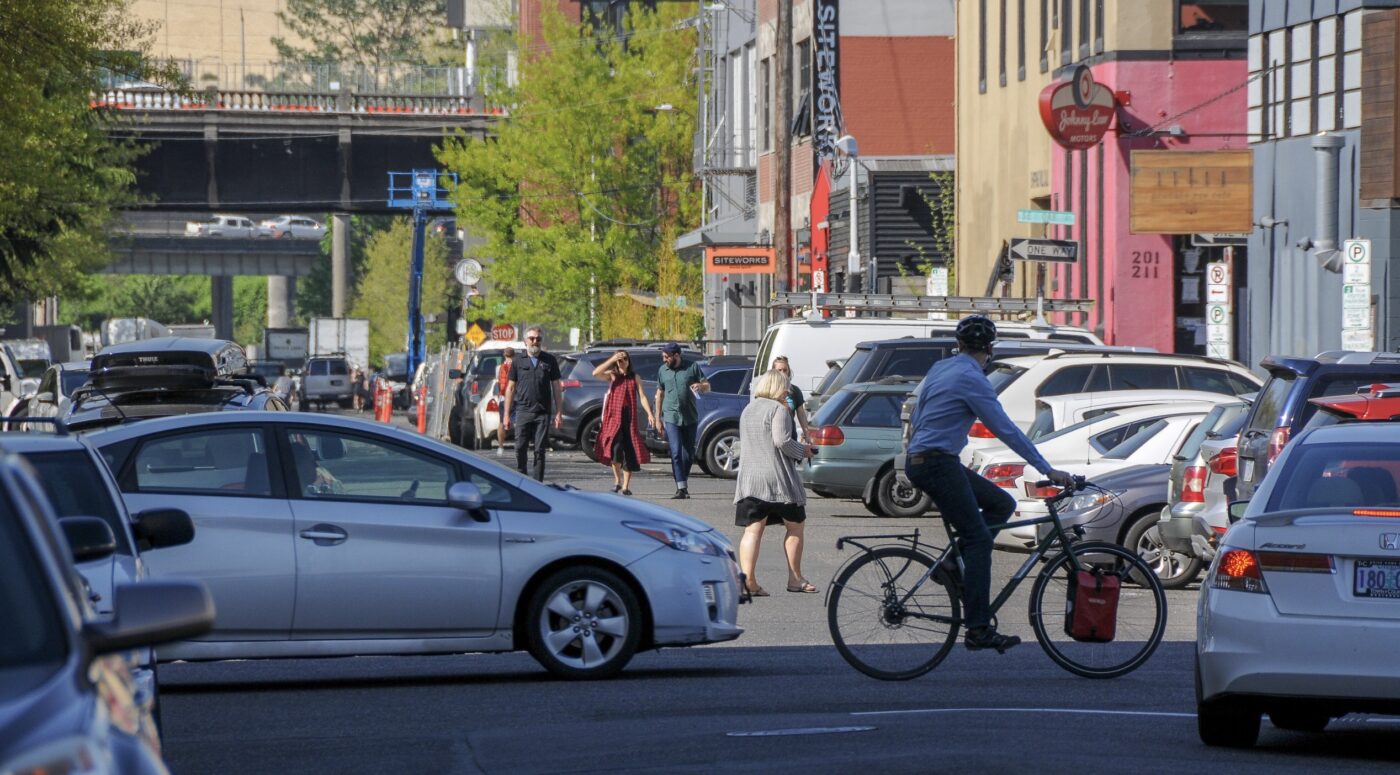
“It’s not a ‘screw-up’. It’s cutting our losses.”
– Hannah Schafer, PBOT
The Willamette Week reported today that the Portland Bureau of Transportation has cancelled a contract with an app developer and the $299,000 they spent will not be recouped. The app, which was supposed to launch this year, was related to PBOT’s Transportation Wallet program, a successful initiative that provides thousands of Portlanders big discounts on services likes bike share rental and transit passes.
As we reported a year ago, the Wallet program has become so popular that it has been expanded and taken from a pilot (that launched in 2017) to a permanent program. PBOT manages three types of Wallets, one for low-income residents (“Access for All”), one for Portlanders who just moved to town (“New Movers”), and one for people who live or work in places where parking is regulated by permits. In these “Parking Districts,” individuals can swap a parking permit for a Transportation Wallet that gives them a collection of passes and credits on transit (TriMet), streetcar (Portland Streetcar), bike-share (Biketown), e-scooters (various companies), and car-share that are worth hundreds of dollars.
The contract in the Willamette Week story relates only to the parking district Wallet program.
Reached for comment about the story and future of the program this morning, PBOT Communications Director Hannah Schafer said the mobile app work was an effort to improve the program both for users and staff. “The web-based and mobile app was envisioned as a tool to streamline and automate the delivery of various Transportation Wallet components,” Schafer shared with BikePortland. “Components that staff are doing manually today and will continue to do in the future.”
Schafer said she realizes this story doesn’t look good for PBOT, especially after the situations on SW Broadway and NE 33rd in recent months, but she took issue with my characterization of it on social media this morning. In a post on X (formerly Twitter), I referred to this as yet another “screw-up” by the agency.
“It’s not a ‘screw-up’,” Schafer contended. “It’s cutting our losses from a vendor [Canada-based RideShark] that wasn’t providing the service we wanted… It just wasn’t working with the app and the vendor.”
In a letter sent Monday to committee members who oversee the parking districts, PBOT Active Transportation & Safety Division Manager Renata Tirta wrote, “We could not in good faith deliver our services reliably, timely, or consistently using the software solution this vendor was developing,” and, “By terminating the contract before the App would have been available for public use, we saved the Bureau and the parking districts money and ensured there are no disruptions to our delivery of the Transportation Wallet in the Parking Districts.”
Schafer said the decision actually saved PBOT money because total contract with RideShark was $350,000 (and was terminated at $299,000). Funding for the contract came from the parking districts ($100,000 each) and PBOT paid for the remaining amount with other sources.
PBOT has distributed 8,400 Transportation Wallets to parking district residents and employees since 2017 and they’ve led to a significant decrease in driving and parking. According to PBOT analysis, people with Wallets drive to work less than half as of much as those without (14% and 32%, respectively). And in the Northwest Parking District, people with Wallets walk twice as much as non-Wallet holders for commute trips (24% and 12%, respectively) and take Portland Streetcar 2.5 times as much (12% and 5%, respectively).
While the termination of the app development contract is another blow to PBOT’s already-ailing budget and reputation, Schafer said it will have no impact on their ability to continue the Wallet program — especially the Access for All Wallet which is set to receive $25 million thanks to the Portland Clean Energy Fund.



